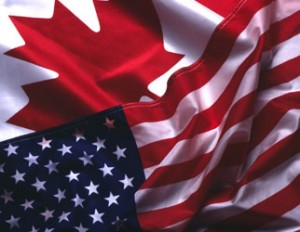A TFSA can’t shelter you from all tax
When it comes to avoiding tax, even a TFSA has its limits. Bruce Sellery explains why.
Advertisement
When it comes to avoiding tax, even a TFSA has its limits. Bruce Sellery explains why.
 Question
I am investing in U.S. Exchange Traded Funds in my Tax-Free Savings Account. Will I have to pay withholding tax?
Answer
Ever since we finished with the messy business of the War of 1812, Canada and the U.S. have gotten along fairly well. We have signed many trade agreements and treaties to help our two economies work better together.
But none of those treaties will prevent you from paying withholding tax when you invest in U.S. ETFs that pay you an income in your tax-free savings account. You are a non-resident so you have to pay the withholding tax, regardless of the fact that the ETF is held within you TFSA. Adrian Mastracci, a portfolio manager with KCM Wealth Management, points out that “the withholding taxes amount to 10% on interest and 15% on dividends from U.S. sources.” That is not an insignificant amount.
Of course the income earned within the TFSA is not subject to Canadian income taxes—hence the tax-free moniker. But you can’t claim a credit for taxes withheld in the U.S. You can however minimize the rate, lowering it from 30% to the 15% mentioned above by filling out a W-8BEN form with your financial institution to verify your non-resident status.
If you’re concerned about the tax then you might want to consider holding your U.S. ETFs either in your RRSP, where you aren’t subject to U.S. withholding tax, or in a non-registered account, where you can claim a credit for the withholding tax when you file your return. If the sum of your U.S. ETFs holdings is substantial then I would recommend a visit to your friendly tax accountant for a full analysis of the tax implications and to review the various options.
Question
I am investing in U.S. Exchange Traded Funds in my Tax-Free Savings Account. Will I have to pay withholding tax?
Answer
Ever since we finished with the messy business of the War of 1812, Canada and the U.S. have gotten along fairly well. We have signed many trade agreements and treaties to help our two economies work better together.
But none of those treaties will prevent you from paying withholding tax when you invest in U.S. ETFs that pay you an income in your tax-free savings account. You are a non-resident so you have to pay the withholding tax, regardless of the fact that the ETF is held within you TFSA. Adrian Mastracci, a portfolio manager with KCM Wealth Management, points out that “the withholding taxes amount to 10% on interest and 15% on dividends from U.S. sources.” That is not an insignificant amount.
Of course the income earned within the TFSA is not subject to Canadian income taxes—hence the tax-free moniker. But you can’t claim a credit for taxes withheld in the U.S. You can however minimize the rate, lowering it from 30% to the 15% mentioned above by filling out a W-8BEN form with your financial institution to verify your non-resident status.
If you’re concerned about the tax then you might want to consider holding your U.S. ETFs either in your RRSP, where you aren’t subject to U.S. withholding tax, or in a non-registered account, where you can claim a credit for the withholding tax when you file your return. If the sum of your U.S. ETFs holdings is substantial then I would recommend a visit to your friendly tax accountant for a full analysis of the tax implications and to review the various options.
Share this article Share on Facebook Share on Twitter Share on Linkedin Share on Reddit Share on Email